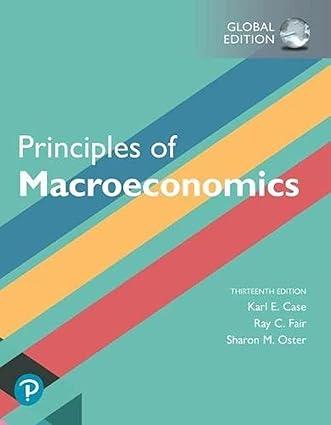During the recession of 20082009, aggregate market work hours in the United States decreased substantially. A recent
Question:
During the recession of 2008–2009, aggregate market work hours in the United States decreased substantially. A recent paper uses interesting new survey data to explore what the unemployed population did with these hours lost to the formal market.1 What would an economist expect to see change in time use for someone newly unemployed in a recession? First, we might expect people to spend some time looking for new jobs.
Aguiar and his co-authors find that between 2 percent and 6 percent of the lost market hours go to job search. But clearly there are diminishing returns to job search, especially in a recession when new job opportunities are limited. What else did the survey reveal about time allocation? Twelve percent of the newly opened time went to activities tied to longer-run job placement, increased education, civic involvement, and health care. Other time, 35 percent of the hours lost, went to nonmarket work, cleaning, home maintenance, and child care. Clearly here the unemployed were substituting their own work for services they used to buy in the marketplace. For the unemployed worker, the opportunity cost of producing one’s own home services is lower, so this change makes good economic sense. The remaining time, just under half the hours lost to the market, went to leisure activities, including sleeping.

Question
How would you expect the time use of the unemployed to differ in a boom time?
Step by Step Answer:

Principles Of Macroeconomics
ISBN: 9781292303826
13th Global Edition
Authors: Karl E. Case,Ray C. Fair , Sharon E. Oster





